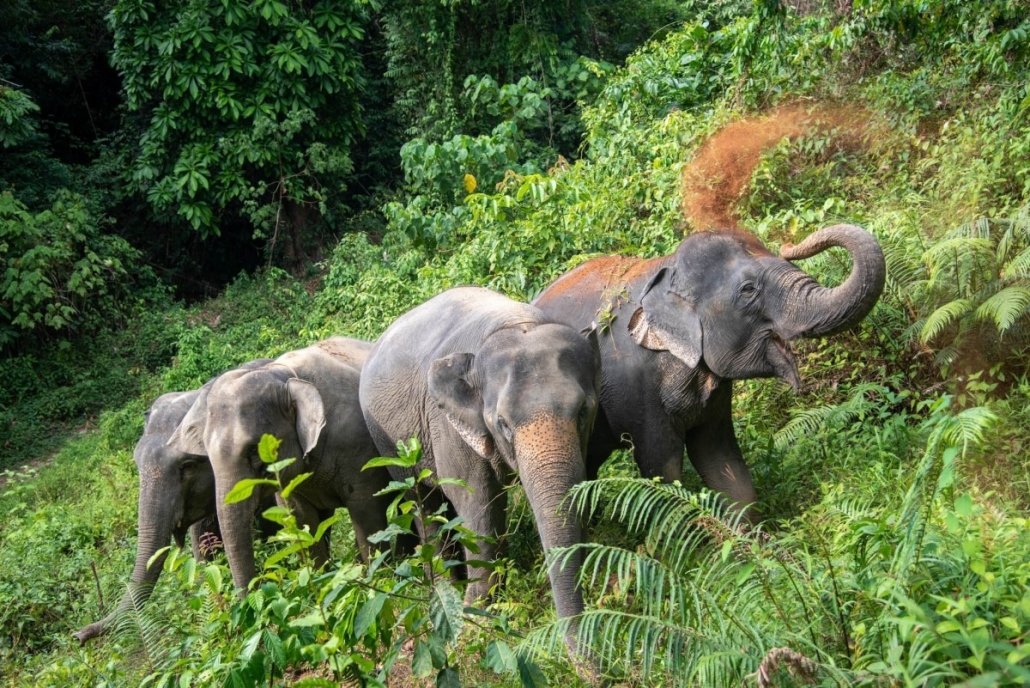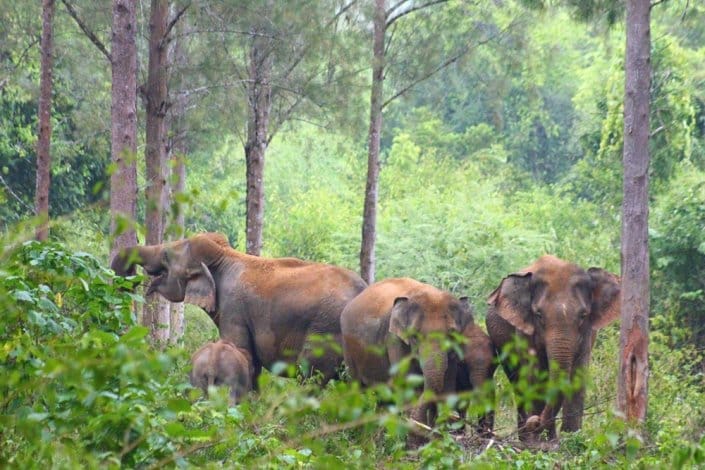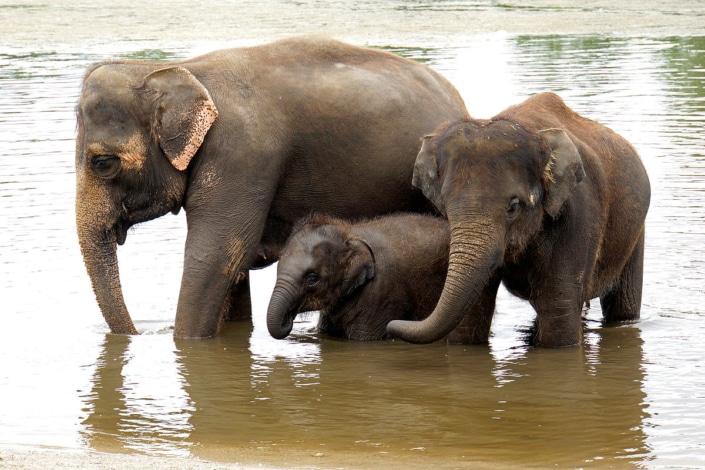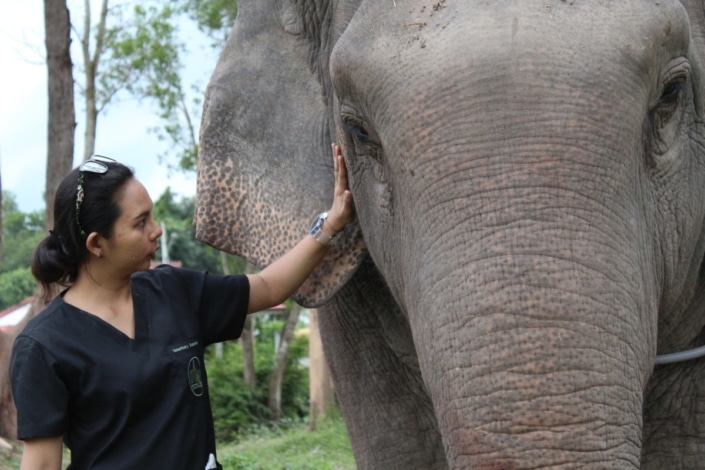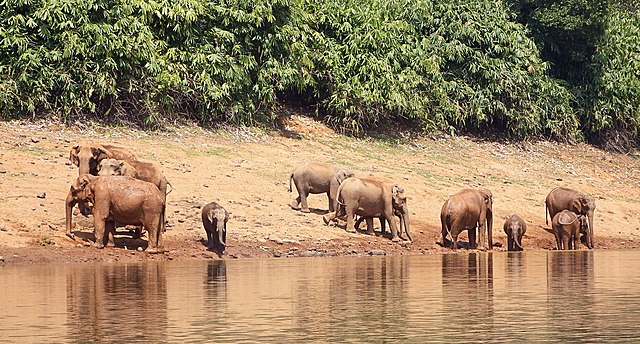Young elephants grazing in the jungle in Southern Thailand
Elephant Networking
Our Journal post on elephant welfare highlighted the importance of good one-to-one handling of elephants, but managing entire herds of such big, intelligent and diverse animals is where it gets even more complicated.
Elephants are social animals, but domesticated herds are rarely made up of just family members as they generally are in the wild. New arrivals to a domestic herd must therefore be introduced slowly to the group to ensure they are accepted with minimal stress or aggression. Initially, vocal and visual communication is made at a distance, and later the newcomer will start to touch trunks or ‘shake hands’ over a barrier, before being welcomed into the herd. This process can take months – some have never lived with other elephants before and take even longer to adapt. Females tend to bond with a new herd quite easily, but adult males are more likely to compete and fight. This reflects the fact that, although all elephants need some social interaction, adult males are mostly solitary in the wild.
Domesticated Asian elephant herds have a fluid social structure, since friendships change over time and elephants come and go (see New York Times article on Social Networks). Males also become competitive once they reach maturity and this affects the herd’s hierarchy and stability. Elephant care teams have to constantly monitor their herd and anticipate these changes. Elephant owners throughout the country need to stay connected, as male elephants often need to be moved for safety reasons. This replicates the process of them leaving their native herd in the wild. Also, moving males around helps to mix up the genetics in breeding herds, enhancing the gene pool.
Every elephant needs enough time and space to feed and bathe in peace, so elephant owners in a shared area may need to take turns and be mindful of each other’s schedules. Variety is also important though – such intelligent animals get bored and stressed very easily – and they need a sense of autonomy which comes from having enough freedom to explore and to replicate natural behaviours. Environmental enrichment can stimulate all five senses and encourage elephants to problem-solve as they would do in the wild. Such enrichment can include new foliage, new terrain, new obstacles and even hidden snacks!
Responsible breeding from domesticated elephants could save Asian elephants from extinction. Over half of Thailand’s total elephant population (approximately 7,000) is made up of domesticated elephants, and the remaining wild populations will not recover easily because of habitat loss. At STEF, we believe that instead of trying to change this balance overnight, we should aim to provide the best possible veterinary care and treatment to elephants whatever their situation.
[Click on photos below to enlarge and read captions]

